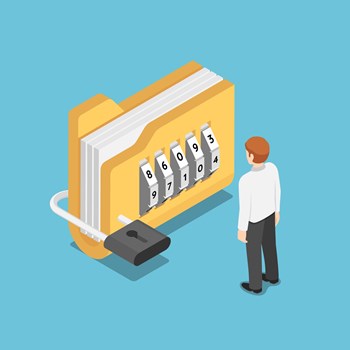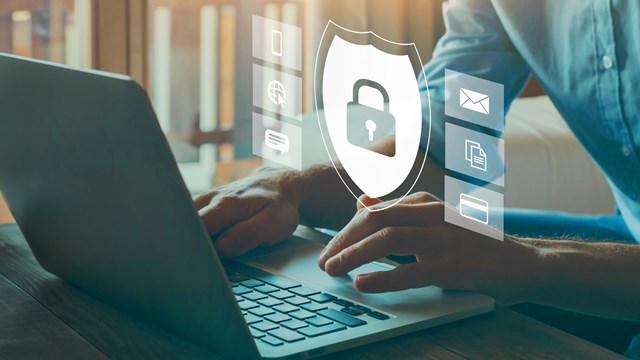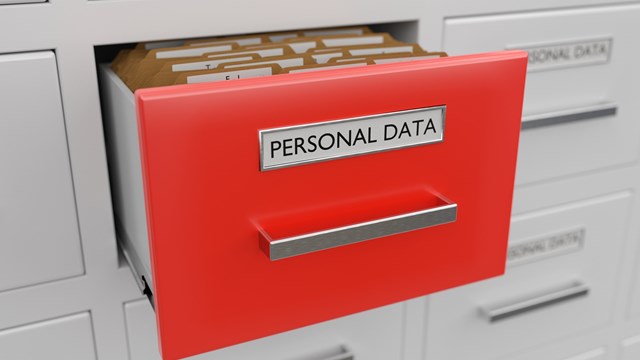
Just about everything these days has gone digital, from the books we read for pleasure to the books we keep on our buildings and HOAs. Even restaurant menus have abandoned paper in favor of ‘touch-free’ QR codes (much to the chagrin of some).
Even relatively small multifamily communities generate volumes of information and data every year, from meeting minutes to receipts for payables and receivables to unit owners’ financial information. Some of that data is innocuous; some of it is highly sensitive. And that raises questions for boards and community managers. How much of it really needs to be kept, and for how long? Are there documents that should be kept specifically in paper form, or are we truly in the Digital Era when it comes to community administration? What obligation do community managers and boards have when it comes to keeping residents’ information secure?
What Does the Law Say?
Convenience and improved organization are two big incentives for digitizing HOA records, but in some cases, it’s also the law. Edward Boyack, an attorney and principal with Las Vegas-based firm Boyack Orme & Murdy, explains that “there was a legislative change to Nevada’s Condominium Act that states that as of January 2022, all basic and legally required docs pertinent to an HOA or other housing association are required to be accessible via electronic portal.”
In fact, says Boyack, Nevada actively promotes the use of electronic records. Starting in January 2023, monthly assessments for common charges, records of past payments, and the option to autopay all had to be available online. “I don’t believe there is anything that must specifically be kept in paper form,” he says. “Eighty percent of our associations are electronic now. All closing statements and transfer deeds are also electronic—and are now required to be so by law. We do keep some physical files, but nothing specific.”
The Practical Approach
Of course, every building and HOA is unique in its own way. While brand-new condo towers have likely been digital from day one, older communities may still have metal filing cabinets full of folders going back decades. “We manage many different types of property of varying ages,” says Marty Moran, vice president of The Building Group (TBG), a property management firm based in Chicago. “The newer properties are fully digitalized, including everything from architectural drawings to manuals for equipment systems. But older properties—especially pre-1900 vintage co-ops, for example—are not. The blueprints for these buildings are still essential for us when work needs to be done, so we encourage these properties to digitize their vintage drawings.
“Digitization is not expensive, and has proven essential for projects like roof replacements and boiler upgrades,” he continues. “Generally, when converting a property’s records to a digital format, we start with the most critical things. One building had the actual minutes from the very first meeting they held when the ownership was formed back in the 1920s, as well as photos of the first board, etc. It was all very historical in nature, and needed to be preserved. They digitized all those records, and even have a shadow box display with the original historical items in their boardroom.”
“Pre-pandemic,” says Dan Wollman, CEO of New York-based management firm Gumley Haft, “we were moving to a new space that was smaller than our previous office, with less room for document storage. We scanned a million documents—we also got rid of a lot. We culled through the files and scanned every single closing file, approved board package, stock certificate, financing info, etc. We had all this in a huge file room before. Now that room barely exists; it’s all digitized. Everything is in a secure place with limited access availability. When someone sells their apartment, their file gets deleted, because we don’t need it anymore. Digitalization is secure, available when needed, and protected. Everything is backed up in the cloud, and we have lots of bells and whistles for security.”
“We shifted to digital records some eight or nine years ago,” says Scott Wolf, managing partner at BRIGS, a large real estate management firm based in Massachusetts. “We started converting documents when scanning became available. Digitization got rid of the file cabinets and boxes. I personally like paper, but I’ve come to understand that it’s redundant. Everything is available online now. We email everything with attachments—no more shifting papers and boxes by hand. I believe a majority of our competitors have converted to digital as well.”
When it comes to the financial tracking and record-keeping necessary for day-to-day community management, Moran says, “Financial documents are arriving in digitized form or are being digitized immediately. Bank statements and other invoices now arrive 75% of the time by email, and are then automatically uploaded into our platform by our corporate accounting department. Paper invoices are scanned immediately. Retention of documents is also going to a digital cloud-based format, because it’s just too easy to lose paper documents. Payments are also done digitally. Board members can log in with a secure password and can review the payments, give a second signature, etc. It’s completely transparent.”
Are All Documents Equal?
“Ninety percent of what we receive now is digitized,” says Wollman. “Nothing comes by paper anymore. Bank statements, invoices, bids—they all arrive digitally. You can attach things to email, so we don’t even write checks anymore. Everything is done electronically. If we do have to process anything, we just scan it and send it to a bank, or whomever the recipient might be.”
Like Wolf, Wollman notes that most community management companies are moving in this direction—and if they aren’t, they’re behind the curve. While concerns about hacking and other types of online fraud are certainly valid, going digital is increasingly not just important, but mandatory for maintaining best business practices—and because of the constant, very real threat of hacks, that process must be secure. Attention must be paid to what type of document is sent in what manner, and very sensitive information must be handled with an appropriate level of security. “We do our best to keep things as secure as possible,” Wollman says. “Board packages are sent through Dropbox or BuildingLink. Sensitive material, like board packages with private personal information, shouldn’t be sent by attached email anymore. There’s no security there.”
According to Wolf, “There’s nothing I can think of that cannot be digital—but there are documents that it’s mandatory to have signed and sent to the Registry of Deeds. We keep a paper copy of these, and when they become official, they are saved electronically as well. The majority of new paper we receive today comes from new business inherited from other companies sending their stuff to us as new management.”
An Accountant’s Perspective
Avi Zanjirian, a partner with New York-based accounting firm Czarnowski & Beer, sees digitization as a positive trend for multifamily community accounting—but does note some points of concern. He points out that digitized information is easily accessed, and can be accessed from anywhere—which has both positive and negative aspects. “No one wants to keep big cabinets of paper around for seven years, but if everything is digitized on a server, personal information must be secure—things like closing statements, bank statements, transfers, and so forth. If you keep that all on the cloud and you get hacked, it’s a potential problem.
“We do live in an age where we can digitize everything,” Zanjirian continues. “I recommend that those things with personal information be kept secure. These documents should not be open to everyone in the office. In terms of workflow, especially since covid, we didn’t have to go into an office; we could do all our audit work digitally. It provided more efficient work for us, and for the client as well, since they didn’t have to make room for us in their office.”
Lastly, Zanjirian points out that nothing really needs to be kept in both digital and paper forms, with the possible exception of mortgage documents. Scanned documents online are more protected and secure than paper—just remember to check both sides of any hard copy you’re converting to digital to make sure you’re capturing the entire document. If someone feels the need to keep paper copies, Zanjirian says that holding onto them for a year should be enough for most documents.
As more and more of our administrative and personal lives move online and into the cloud, building and association managers, attorneys, accountants, board members, and—when appropriate—residents need to have access to crucial documents, while also being assured that those documents are stored securely and appropriately. With everything in one easily accessible place, tasks like audits and reviews become easier to complete. The key is security and conscientious care when transferring, storing, and accessing records.






Leave a Comment